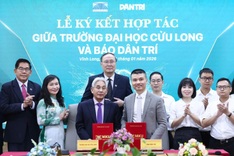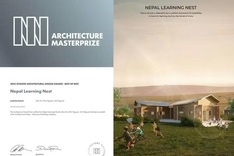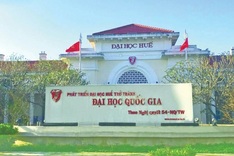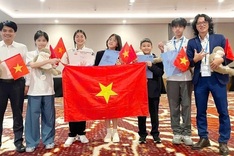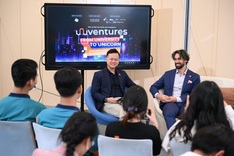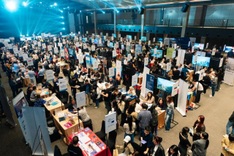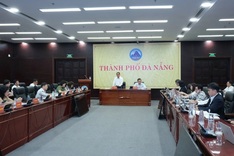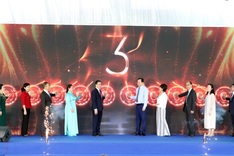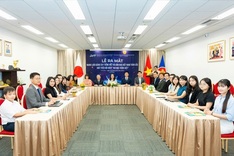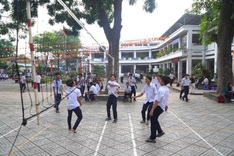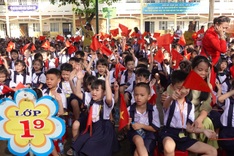Vietnam is determined to provide favourable conditions for every citizen to access lifelong learning opportunities.
 |
| Vietnam is determined to provide favourable conditions for every citizen to access lifelong learning opportunities. |
These goals are expressed in a project targeted at building a more highly educated society to be implemented in the 2011 – 2020 period.
The determination was made by the Ministry of Education and Training (MoET) at the "Vietnam Forum on Lifelong Learning: Building a Learning Society" being held from December 6-8 in Hanoi by its representatives in partnership with UNESCO Hanoi and ASEM Education and Research Hub for Lifelong Learning (ASEM LLL Hub).
The forum gathers over 200 key policy makers and leading members from the education sector throughout the country as well as some 100 ASEM LLL Hub researchers, university leaders and UNESCO experts who come to share research results, exchange perspectives and experiences in the field of LLL.
Addressing the opening ceremony on December 6, Deputy Prime Minister Nguyen Thien Nhan affirmed that lifelong learning is becoming a popular trend and target of many countries. “In Vietnam, lifelong learning will be based on 5 foundations: regular/fulltime training, part-time training, distance training, continuing education centres and community training centres,” he said. “But only a small part of the Vietnamese population can access lifelong learning now while the quality and efficiency are still limited.”
He said that this issue has been included in a document sent to the coming 11th Communist Party Congress which proposed encouraging and creating opportunities of lifelong learning for every Vietnamese citizen.
In a report on the present learning society in Vietnam, Deputy Minister of Education and Training, Nguyen Vinh Hien, announced that Vietnam had been developing its education based on building a learning society and had achieved some encouraging success over the last years.
“By now, 52 of 63 provinces and cities have universalised primary education for 6-year-old children,” he said. “63 of 63 provinces made the standard for universalising secondary education. The average 15 year old has received over 9 and a half years of study. The country has also basically reached equality for men and women in education.”
After 14 years of operation, the Vietnamese Association for Encouraging Study has expanded to every corner in the country with more than 200,000 branches and 7.5 million members. The association has cooperated with the MoET to build over 9,600 community training centres for adults. Moreover, its activities also include presenting scholarships for students in poverty, building schools and funding scientific projects.
| The main objectives of the Forum are: * To enhance understanding of the concept and the role of LLL in the process of building a \'learning society\', which will support Vietnam in developing a national LLL strategy; * To share with the Vietnam’s ministries, educational specialists, social partners and representatives from industry the latest research findings, ideas and developments in legislative, financial and organisational frameworks for supporting LLL in various ASEM countries; * To share global perspectives, good practices in developing and implementing LLL strategies in various ASEM countries; * To stimulate academic cooperation in LLL research among ASEM universities, hence enhance research capacity and broaden perspectives for ASEM researchers in the field; * To strengthen linkages between researchers and policy makers in order to develop future research-based policies and enhance the implementation of LLL initiatives; * To create a joint UNESCO- ASEM initiative in promoting LLL. |
The ASEM LLL Hub was launched at a conference in Copenhagen in May 2005. It aims at being a platform for dialogue between researchers, practitioners and policy makers in order to create foundations for evidence-based educational reforms. It is also an "umbrella network" of Asian and European universities, striving for excellence of comparative research in lifelong learning and wishing to learn from each other. It further supports mobility of students and academic staff within and between the two regions.

